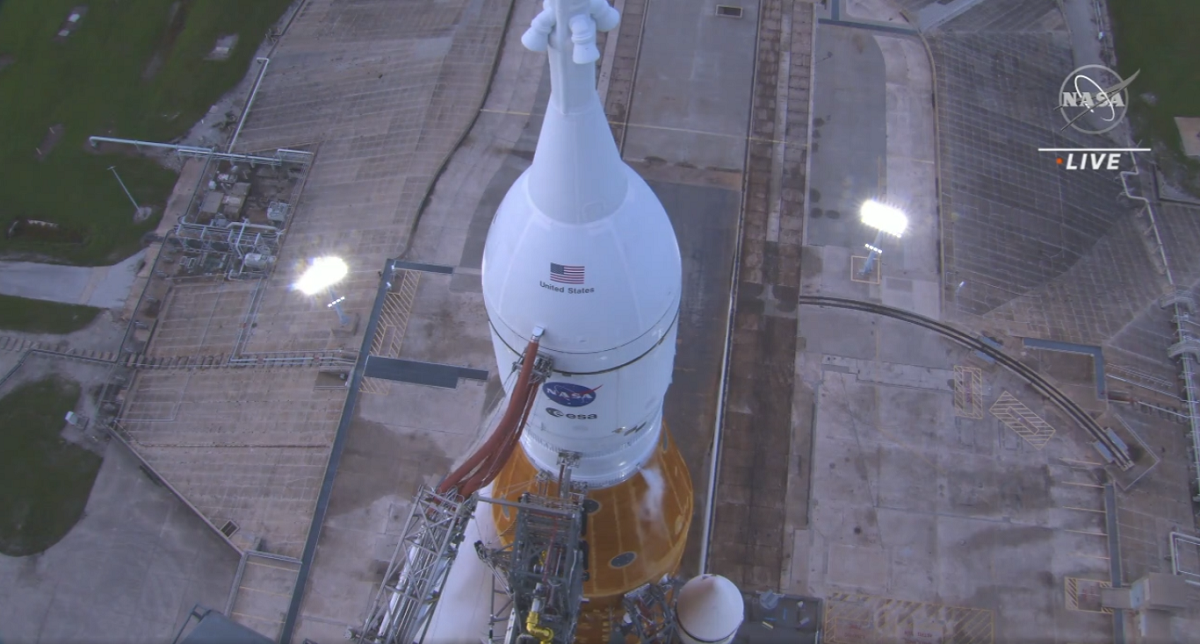NASA cancels Monday launch of Moon rocket

An engine problem has delayed the launch on Monday of NASA's most powerful rocket yet on an uncrewed test flight to take humans back to the Moon and eventually to Mars.
Blastoff, which had been planned for 8:33 a.m. (1233 GMT, 8:33 p.m. Philippines time), was put on hold because of a temperature issue with one of the four RS-25 engines on the 322-foot (98-meter) Space Launch System (SLS) rocket, the US space agency said.
The launch of #Artemis I is no longer happening today as teams work through an issue with an engine bleed. Teams will continue to gather data, and we will keep you posted on the timing of the next launch attempt. https://t.co/tQ0lp6Ruhv pic.twitter.com/u6Uiim2mom
— NASA (@NASA) August 29, 2022
Alternative dates for launch of the Artemis 1 mission are September 2 and September 5.
Tens of thousands of people—including US Vice President Kamala Harris—had gathered along the beach near the Kennedy Space Center in Florida to watch the launch, which comes 50 years after Apollo 17 astronauts last set foot on the Moon.
The goal of the flight, dubbed Artemis 1, is to test the SLS and the Orion crew capsule that sits atop the rocket. Mannequins equipped with sensors are standing in for a crew for the mission.
Overnight operations to fill the rocket with more than three million liters of ultra-cold liquid hydrogen and oxygen were briefly delayed by a high risk of lightning, though it was a "go" after an hour.
Around 3:00 a.m., another hiccup emerged: a potential leak was detected during the filling of the main stage with hydrogen, causing a pause.
After tests, the flow resumed.
"The leak is at an acceptable level and we have returned to fast fill operations," NASA tweeted.
But NASA engineers later detected a problem with the temperature in one of the four engines and put a hold on the countdown. NASA has a two-hour window Monday in which to carry out the launch.
The massive orange-and-white rocket, which has been sitting on the space center's Launch Complex 39B for more than a week, is not able to take off in case of rains and storms.
The rocket's Orion capsule is set to orbit the Moon to see if the vessel is safe for people in the near future. At some point, Artemis aims to put a woman and a person of color on the Moon for the first time.
"This mission goes with a lot of hopes and dreams of a lot of people. And we now are the Artemis generation," NASA Administrator Bill Nelson said.
In another first, a woman—Charlie Blackwell-Thompson—will give the final green light for liftoff.
Women now account for 30 percent of the control room staff, compared to one for the Apollo 11 mission—the first time astronauts landed on the moon in 1969. — Agence France-Presse



